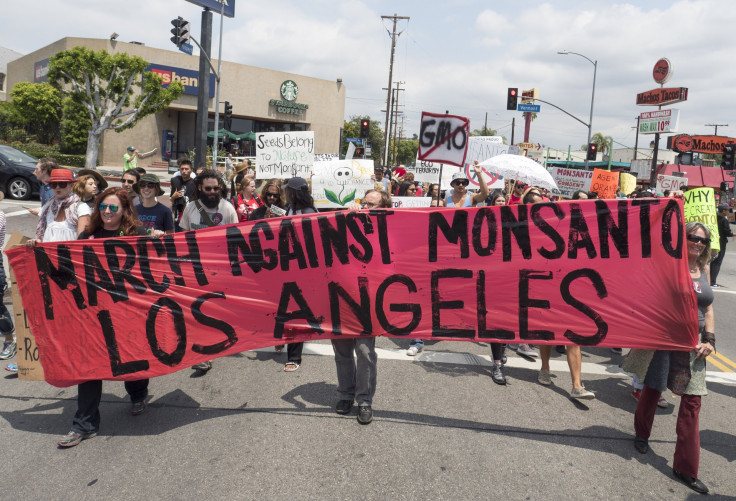GMO Labeling Bill 2015: Monsanto Supports Proposed National Law For Voluntary Disclosure Of Genetically Engineered Foods

Should the United States label genetically modified foods, and if so, how? The question is at the heart of a fierce and ongoing controversy that will only be heightened when a U.S. House panel discussion discusses legislation later this week that could establish voluntary GMO labeling for foods. Biotechnology company Monsanto has backed the legislation, and critics argue that such support clearly indicates the measure would cater to the agriculture industry rather than protect consumers.
The Health Subcommittee of the House Energy and Commerce Committee is scheduled to meet Thursday to hear testimony from experts and discuss the Safe and Accurate Food Labeling Act of 2015, authored by Rep. Mike Pompeo, R-Kan., and Rep. G.K. Butterfield, D-N.C. The list of expert witnesses had not yet been released as of Monday, but they were expected to discuss the role of biotechnology in the U.S. food supply, as well as “the safety of foods derived from genetically engineered crops and the need for national review and labeling standards for such products,” according to a press release from the Energy and Commerce Committee.
The proposed legislation is pointed toward setting a national standard for labeling foods that have been genetically modified or produced with genetically modified ingredients, as states move to pass laws of their own requiring such disclosures. If the national measure passes, it would not require labeling outright. Rather, it would require the Food and Drug Administration to do a safety review of foods that have been genetically engineered, before the agency decides whether labeling was needed.
One aim of the bill is to head off the development of labeling requirements that vary from state to state, supporters of the bill have said. In the federal government, “people see what could happen if we end up with a patchwork, with state-by-state legislation,” said Claire Parker, spokeswoman for the Coalition for Safe and Affordable Food, of which Monsanto is a member, the St. Louis Post-Dispatch reported.
But those who favor more stringent labeling requirements say the bill simply caves to industry interests. Critics have called it Monsanto’s “dream bill,” and an online petition describes the bill as “prohibit[ing] states from requiring the labeling of genetically engineered foods.” The petition reads, “We have a right to know what is in our food so that we can make informed choices about the food we eat.”
Vermont recently passed a law requiring that any foods that have been genetically modified or containing genetically engineered ingredients be labeled with that information. It is scheduled to go into effect July 1, 2016. Industry groups have attempted to block the law, but without success so far.
Still others contest the notion that GMOs are unsafe in the first place. “There is a strong international consensus that current engineered crops and food ingredients made from those crops are safe and there is no safety reason for consumers to avoid products with ingredients from biotech crops,” Greg Jaffe, the head of the Center for Science in the Public Interest’s biotechnology project, noted in a statement in March.
More than half of the general public thinks that GMOs are unsafe, but the vast majority, or 88 percent, of scientists have said that such foods are, for the most part, safe, a survey by the Pew Research Center found in January.
© Copyright IBTimes 2025. All rights reserved.






















